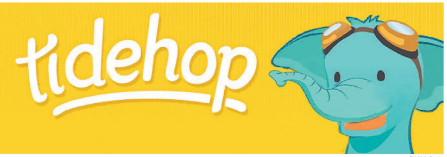In American news of 1949, Harry Truman was president, the fourth Geneva Convention was signed, the term “big bang” was coined and the National Basketball Association was born. In University of Alabama news of 1949, Spike Jones was coming to campus, a cutest dog competition was being organized, University news was being both criticized and accredited, and sorority and fraternity housemothers were taking classes to learn how to best cook for their students. And so, for this week’s Tide Hop we turn the page back 68 years and look through The Crimson White of Feb. 15, 1949.
Spike Jones: “Spike Jones Scheduled At Foster on Thursday,” read the headline of the front page article telling the Capstone that Spike Jones, American musician, radio host, and actor known for his satirical versions of popular songs, was set to perform at the University with his City Slickers – his band and singers.
“Spike Jones was comparatively obscure [until September 1942] when the novelty song ‘Der Fuehrer’s Face’ was introduced on the air,” the article said, going on to explain how Jones and the City Slickers became an overnight success. “[The song] was released on Saturday, he signed a motion picture contract on Monday, signed a radio contract on Tuesday, appeared with Bob Burns on Wednesday and got a contract from the recording company the following Friday, all this in seven days.”
The group was stopping at the University as part of their “Musical Depreciation Revue” tour which the CW said “looks more like a combination museum, zoo and sideshow than anything else” as the show includes animals, a “giant and midget” and numerous noisemaking devices – Jones’s trademark.
“…Spike brings out musical arrangements starting with cowbells and ending with lovely belles,” the article said.
Though one might be concerned that the show would need more cowbell and less lovely belles, the show was set for 8 p.m. on Thursday nonetheless, with general admissions tickets costing $2 and reserved seats costing $3.
Puppies!: The campus publication Rammer-Jammer sponsored a cutest male dog contest to find “‘Fido Capstone,’ [the] prettiest dog on campus.”
Students were encouraged to send pictures of their “pooches” for judging before midnight on Feb. 27. Any and all pooch breeds were accepted.
“‘Fido Capstone’ will receive as a prize a fireplug loving cup, the real thing in miniature,” the article said.
There were prizes for runners-up as well, including a free shampoo at any Tuscaloosa beauty parlor, a free meal at Pug’s, the right to spend a night in any sorority house and a date with the cutest female dog on campus.
“We have already selected the cutest date for a dog on campus,” a judge told the CW, “but it’s a secret who she is.”
Journalism: In 1949 the University Board of Publications passed a motion for improvement of the CW’s reporting and physical makeup.
“I believe that criticism is as much an editor’s duty as praise,” said Robert Wallace, an English department representative. “I feel that any office holder must expect scrutiny of his work and gracefully accept some criticism of even the most praiseworthy acts and attitudes. I think the CW this year has been abnormally inaccurate and biased in reporting; very bad in proof reading, grammar and other matters that should be handled correctly as a matter of routine; and, though laudably alert and outspoken, sometimes unwise or wrongheaded in editorial opinion.”
Wallace sounds much like the Facebook comments and tweets directed at The Crimson White of 2017. Not only do we work tirelessly to improve ourselves with each issue, but this week we’ve accepted criticism and decided to share them with the world in our Mean Tweets video.
As student journalism received criticism, the institution that teaches journalism to students was looking to receive a second accreditation.
The Capstone’s journalism department was already accredited by the American Association of Schools and Departments of Journalism, but the department looked to be by the American Council on Education for Journalism.
The ACEJ was expected to inspect courses and come to a decision in the coming months.
“The ACEJ serves a three-fold purpose,” the article said. “– to recognize outstanding schools of journalism, to attempt improving educational standards of journalism, and to link schools closer with the journalism profession.”
In 2017, the University’s department of journalism is looking to link itself closer to the profession by merging with another department. Instead of having separate departments of journalism and telecommunication and film, the two have merged to become the department of journalism and creative media so as to expose students to and educate them on the country’s growing multimedia industry.
Housemother’s Hour: Following the program’s one-month anniversary, the CW wrote an article about Housemother’s Hour, a weekly discussion time for fraternity and sorority housemothers.
According to the article, the women, who at the time were in charge of Greek meals, would meet every Thursday in Doster Hall to talk about ways to improve students’ meals while cutting the costs. The meetings were sponsored by the Interfraternity Council and led by professors of home economics.
“[One of the professors] said the program was designed to make students healthier through better meals and happier by a variety in the menu,” the article said. “And she said by trimming the costs, it might make students’ pocketbooks happier also.”
At meetings housemothers discussed how to drop the cost of milk for students, what food to buy fresh, frozen, or canned, what to buy retail versus wholesale and different menu options.









